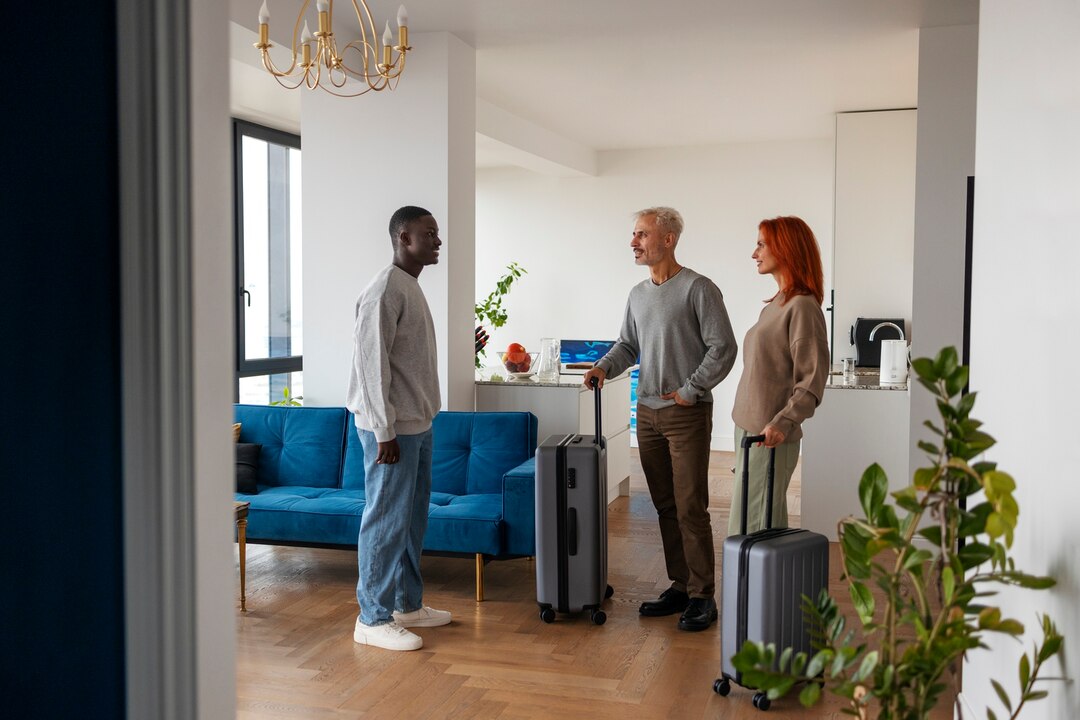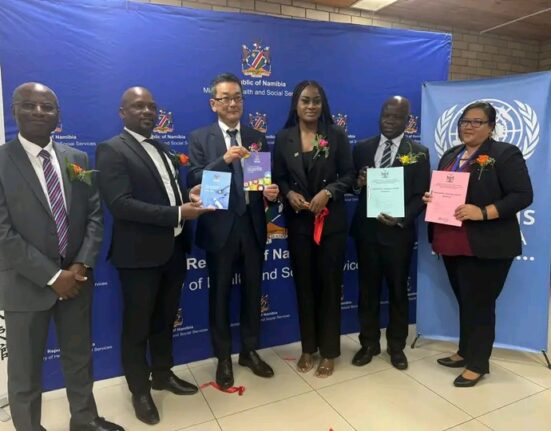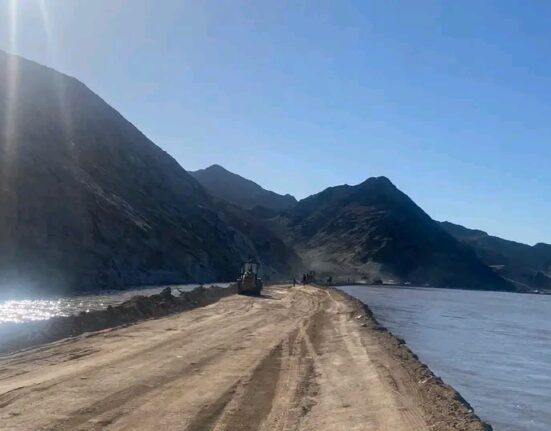In recent years, Airbnb has revolutionized the travel and hospitality industry worldwide, and Namibia is no exception. As the world becomes more connected and travelers seek unique and personalized experiences, Airbnb has provided an alternative to traditional hotels, offering diverse accommodation options that cater to various budgets and preferences. This article will explore how Airbnb has transformed travel accommodation in Namibia, creating new opportunities for both locals and tourists, and contributing to the country’s growing tourism sector.
The Rise of Airbnb in Namibia
Since its inception in 2008, Airbnb has grown into one of the world’s largest online platforms for booking short-term rentals. Its impact has been felt in countries all over the globe, and Namibia has not been left behind. The platform has become a game-changer in the Namibian tourism industry, enabling homeowners, property managers, and entrepreneurs to monetize their spaces while offering travelers a wider range of accommodation choices.
Before Airbnb, Namibia’s tourism accommodation options were largely limited to traditional hotels, guesthouses, and lodges. While these options are still popular, Airbnb has opened up new possibilities by offering alternative stays such as private homes, apartments, safari tents, and even remote lodges in Namibia’s stunning desert landscapes.
Expanding Access to Unique Destinations
One of the main factors that sets Airbnb apart from traditional accommodation options is its ability to offer travelers unique stays in off-the-beaten-path locations. Namibia, known for its vast deserts, rugged mountains, and diverse wildlife, is a country where travelers often seek out more remote and intimate experiences. Airbnb has facilitated this by providing access to properties that are located in less touristy areas, allowing visitors to explore Namibia in a way that traditional hotels simply cannot offer.
For example, Airbnb listings in the Namibian desert region, including the famous Sossusvlei, allow travelers to stay in eco-friendly desert lodges or rustic bush camps, offering an immersive experience in one of the world’s most striking landscapes. Similarly, properties near Etosha National Park provide tourists with an opportunity to stay close to Namibia’s world-renowned wildlife and national parks, all while enjoying the comforts and flexibility of self-catering or private rentals.
Affordability and Flexibility for Travelers
One of the most significant advantages of Airbnb is the affordability it offers travelers. In a country like Namibia, where tourism is a major economic contributor, accessibility to affordable accommodation is crucial for attracting a broad range of visitors, from backpackers to luxury tourists. Airbnb’s diverse range of options ensures that visitors can find something that fits their budget.
Whether travelers are looking for a basic room in a shared house, an entire apartment, or a lavish villa, Airbnb’s pricing flexibility allows for a more tailored experience. Tourists can enjoy Namibian adventures without breaking the bank, while at the same time, premium listings in cities like Windhoek and Swakopmund allow for a more luxurious stay.
Moreover, Airbnb’s emphasis on self-catering accommodation means that travelers can save on food and dining costs by preparing their own meals, further adding to the affordability of their trip. This flexibility, combined with the variety of accommodation styles and price points, has made Airbnb an attractive option for different types of travelers.
Boosting Local Economies and Empowering Hosts
Airbnb’s impact in Namibia extends beyond providing accommodation for tourists; it has also empowered local hosts and communities by creating new income streams. Many Namibians who may not have had the means to open traditional hospitality businesses have been able to capitalize on Airbnb’s platform by renting out spare rooms, guesthouses, or even entire homes.
This has been particularly significant in remote regions of the country, where traditional employment opportunities may be limited. By hosting guests on Airbnb, locals can earn additional income, which not only helps them but also supports the broader local economy. This income generation has enabled many hosts to improve their properties, invest in their communities, and further develop Namibia’s tourism infrastructure.
Airbnb has also made it easier for Namibian hosts to connect with international visitors. With the ability to market their properties globally, hosts no longer need to rely solely on local tourism or word of mouth. The platform’s global reach helps to attract a diverse range of tourists, from those seeking adventure in the deserts to those visiting the coastal towns for beach holidays or exploring Namibia’s rich cultural heritage.
Sustainable Tourism and Eco-Friendly Stays
Namibia’s diverse and fragile ecosystems make sustainable tourism a priority for the country’s future. Airbnb has contributed to this by providing eco-friendly and environmentally conscious accommodation options, aligning with Namibia’s focus on preserving its natural beauty. Many hosts on the platform offer properties designed with sustainability in mind, including solar-powered homes, eco-lodges, and off-grid properties that minimize their environmental impact.
The growing demand for eco-conscious travel experiences has encouraged more hosts to invest in sustainable practices, such as water conservation, waste management, and using renewable energy sources. In a country where conservation is vital, Airbnb has helped promote sustainable tourism by enabling travelers to choose accommodations that are aligned with eco-friendly principles.
This trend also supports Namibia’s tourism strategy, which focuses on creating sustainable and responsible travel experiences. By staying in environmentally friendly properties, tourists are contributing to Namibia’s broader conservation goals, making their trip not only memorable but also beneficial to the environment.
Enhancing Cultural Exchange and Authentic Experiences
Another key way Airbnb has transformed accommodation in Namibia is by fostering cultural exchange and providing authentic experiences. Unlike traditional hotels, Airbnb encourages hosts to share local insights and personal stories, allowing visitors to experience the country’s rich cultural heritage in a more intimate way.
For example, travelers staying with local hosts in the capital city, Windhoek, or smaller towns such as Tsumeb and Luderitz, can engage with Namibians on a deeper level, gaining insights into the country’s traditions, history, and way of life. Many hosts also offer experiences, such as guided tours of local markets, cultural dinners, or art workshops, providing tourists with the opportunity to engage with Namibia’s diverse cultures.
This emphasis on cultural exchange and authentic experiences has helped boost Namibia’s tourism sector by attracting travelers who are seeking more than just a place to sleep. They want to immerse themselves in the local culture, and Airbnb facilitates this by allowing visitors to stay in residential areas and interact directly with the community.
The Future of Airbnb in Namibia
As Namibia’s tourism sector continues to grow, Airbnb’s role in transforming travel accommodation is expected to expand. The platform’s flexibility, affordability, and focus on unique experiences will likely continue to attract both international and domestic travelers. As more Namibians embrace Airbnb’s hosting model, the platform will continue to provide opportunities for locals to tap into the tourism industry.
Furthermore, as sustainability and cultural exchange become increasingly important to travelers, Airbnb’s focus on eco-friendly and authentic stays will align with Namibia’s broader tourism goals. With a growing number of properties available in both urban and remote areas, Airbnb is poised to remain an integral part of the Namibian tourism landscape for years to come.
Airbnb has undeniably transformed travel accommodation in Namibia by offering a diverse range of affordable, unique, and sustainable options for travelers. The platform has not only created new opportunities for hosts but also contributed to the growth of Namibia’s tourism sector, supporting local economies and encouraging cultural exchange.
For both tourists and locals, Airbnb provides a platform that promotes flexibility, sustainability, and memorable travel experiences. As the Namibian tourism industry continues to evolve, Airbnb will remain a key player in shaping the future of travel accommodation in this beautiful and dynamic country.













